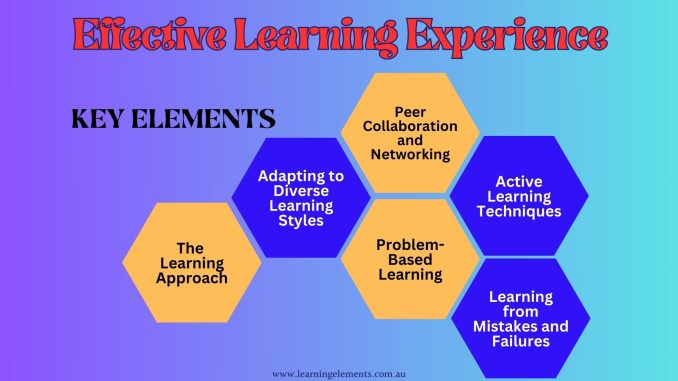
Learning is a fundamental part of human life. Whether you’re a student in school, a professional upgrading your skills, or simply someone curious about the world, how you learn matters. But while most people rely on familiar habits like rereading or highlighting, cognitive science reveals that these are often not the most effective strategies.
So what does science say about how we learn best? Let’s explore the fascinating research behind effective learning, and how understanding the brain can help you learn smarter—not just harder.
1. The Brain Learns by Making Connections
At the core of learning is neuroplasticity, the brain’s ability to form new connections and pathways. When we learn something new, our brain physically changes. Each time we recall or apply a piece of information, the connections between neurons strengthen, making the memory easier to access later.
This is why repetition matters—but not just any repetition. Spacing out practice over time, rather than cramming, significantly improves long-term retention. This is known as spaced repetition, and it’s one of the most well-supported findings in cognitive science.
2. Active Recall Is King
Among the most powerful strategies is active recall—the process of retrieving information from memory without looking at notes. Instead of reviewing a chapter over and over, you test yourself on what you remember.
Studies show that active recall strengthens memory more than passive review. In fact, research published in Science (Roediger & Karpicke, 2006) found that students who practiced retrieval retained up to 80% of material, compared to 36% for those who only reread.
Flashcards, practice quizzes, or writing down everything you can remember from a topic are all effective forms of active recall.
3. Spaced Practice Beats Cramming
You’ve probably heard that cramming the night before an exam isn’t ideal—and science confirms it. Spaced practice involves spreading study sessions out over time, which leverages the brain’s natural forgetting curve.
When you allow some forgetting to happen before you review again, your brain has to work harder to retrieve the information. This “desirable difficulty” makes the memory stronger.
For example, studying a topic today, reviewing it again in two days, then a week later, is far more effective than reviewing it three times in one night.
4. Interleaving Helps You Think Smarter
Rather than focusing on one topic at a time (blocked practice), interleaving mixes related topics or problem types. For instance, instead of solving 10 algebra problems followed by 10 geometry problems, you alternate between the two.
This forces the brain to compare, contrast, and apply knowledge flexibly—mimicking how real-life problem-solving works. It’s especially useful in math, science, and skill-based learning like sports or music.
5. Elaboration Enhances Understanding
Another science-backed strategy is elaboration, which involves explaining what you’re learning in your own words and making connections to prior knowledge. When you elaborate, you’re not just memorizing—you’re understanding.
For example, instead of memorizing that the mitochondria is the “powerhouse of the cell,” ask: Why is it called that? How does it relate to energy production in my own body?
This method deepens comprehension and increases your ability to recall and apply knowledge in different contexts.
6. Dual Coding Combines Visual and Verbal Learning
According to dual coding theory, combining words and visuals—like diagrams, charts, or timelines—enhances learning. When you engage multiple senses, the brain forms more retrieval pathways.
Top students often turn notes into mind maps, draw illustrations, or summarize a lecture with a labeled diagram. The goal isn’t to be artistic; it’s to reinforce meaning through more than one mode.
7. Sleep and Exercise Are Part of Learning Too
Learning doesn’t happen in isolation—it’s deeply affected by lifestyle. Sleep, for instance, is when your brain consolidates memories. Getting adequate rest after studying allows your brain to move short-term memories into long-term storage.
Likewise, physical activity improves blood flow to the brain, boosts mood, and sharpens focus. Even a 20-minute walk can improve attention and mental clarity before or after a study session.
8. Mistakes Are Essential to Learning
We often fear getting things wrong, but science shows that making errors—and correcting them—is key to memory formation. When you try to answer a question and fail, the brain pays more attention to the correct answer.
This is why low-stakes testing, self-quizzing, and reflecting on incorrect answers help far more than simply rereading the right ones. The discomfort of getting something wrong actually strengthens your ability to get it right later.
Leave a Reply